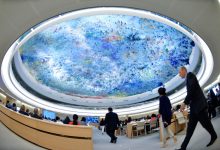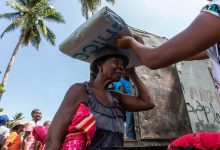Americas: Pace of Omicron slows amid rising COVID infections
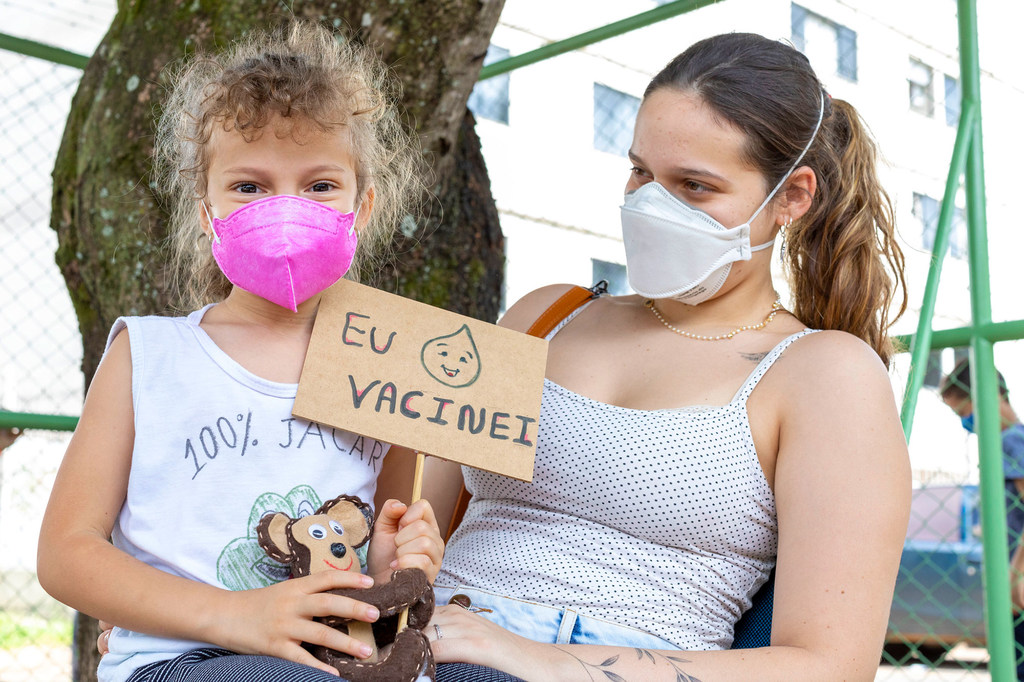 COVID infections and deaths in North America continue to rise, as hospitalizations increase throughout the whole continent, the head of the World Health Organization’s (WHO) Regional Office said on Wednesday.
COVID infections and deaths in North America continue to rise, as hospitalizations increase throughout the whole continent, the head of the World Health Organization’s (WHO) Regional Office said on Wednesday.
And in the crucial area of vaccination, although the Americas now have some of the highest COVID-19 vaccination coverage rates on the planet, it’s also “the most unequal region in the world” when it comes to shots, said Carissa Etienne, Director of the Pan American Health Organization (PAHO).
Last week, there were seven million new COVID cases and more than 34,000 COVID-related deaths”, she told the regular weekly media briefing.
“However, the rise in infections seems to be slowing down in places hit earliest by the Omicron variant”.
North America recorded more than four million new infections, accounting for most of the latest cases, as surges continue across Central and South America, where Chile and Brazil have posted record numbers of daily cases.
Moreover, deaths have risen for the fourth consecutive week in all subregions, showing a nearly 33 per cent growth over the previous week.
In the Caribbean, deaths have more than doubled in Cuba, the Bahamas, and Antigua and Barbuda, while other islands, like Martinique and Guadeloupe, are seeing COVID spread rapidly among young and unvaccinated people.
“These trends show that we must continue to sustain every part of our COVID response”, said Dr. Etienne. “Vaccinations, testing, and continuing public health measures like mask wearing and social distancing remain crucial”.
Unequal vaccine coverage
Crediting the hard-fought efforts of countries throughout the Americas and generous support of donors, she said that 63 per cent of people across Latin America and the Caribbean have now been fully vaccinated against the coronavirus.
However, while the region has some of the world’s highest COVID-19 vaccination coverage, Dr. Etienne pointed out that “despite our progress”, vaccination remains highly uneven across Latin America and the Caribbean.
It is “a worrisome sign” that more than one in four people across the Americas “have yet to receive a single dose of protection”, she said.
Data ‘blind spots’
While 14 States and territories have fully immunized 70 per cent of their populations, the same number have yet to protect even 40 per cent of theirs.
And more than 54 per cent of people in low and middle-income countries have yet to receive a single COVID-19 vaccine.
“We also have serious blind spots because we can’t see detailed vaccination data”, she continued, encouraging countries to collect and report data coverage by age, sex and by risk group, where possible.
“Without these numbers, we won’t know what proportion of high-risk groups, like the elderly, pregnant women, or health workers, have been protected”.
As data is crucial to designing targeted vaccination campaigns, maximizing the impact of vaccine doses, and saving live, without it, there are some worrisome gaps.
Vaccines for all
Fortunately, with donations totalling some 26 million doses, vaccine supplies are expected to pick up this year.
PAHO’s Revolving Fund, which has delivered almost 100 million doses, is on track to obtain 200 million vaccines this year, thanks to the Fund’s agreements with manufacturers.
Due to a rapid scale up in purchases, donations, and COVAX deliveries, countries will have enough stock to implement mass rollouts and offer vaccines to those as yet unprotected.
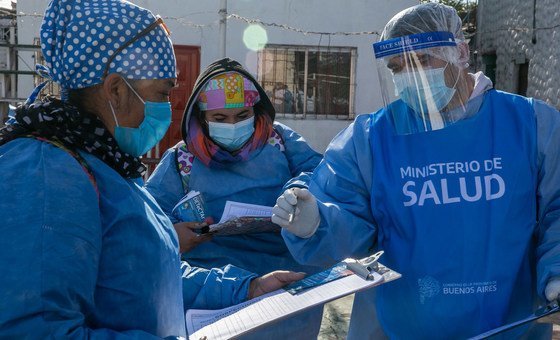
As the doses arrive, countries are urged to collect and report stratified vaccine data; re-analyze the data to better understand gaps; prioritize high-risk groups; and refocus efforts to protect health workers, immunocompromised individuals, and the elderly.
“If they don’t, they will continue to experience outbreaks, their hospitals will remain overstretched, limiting care for other conditions, and too many people will continue to die from this virus”, warned the top PAHO official.
Keep children in school
“Healthy children and adolescents should be the last to receive COVID-19 vaccine doses since they’re at lowest risk for severe disease”, said Dr Etienne, encouraging schools to remain open to “protect the wellbeing of our children”.
“Childhood vaccination is not a prerequisite for safe school reopening”, she added.
PAHO also underscored the need for countries to invest in their vaccination programmes by bolstering their cold chain capacities; hiring and training health workers to deliver the vaccines; and developing plans to inoculate in hard-to-reach areas.
“Now is the time to strengthen vaccination campaigns, organize vaccination drives and empower key groups like health workers and religious leaders to become vaccine advocates”, said the PAHO chief.
Leading by example
Reminding that COVID-19 vaccines are safe, effective and the best way to protect everyone from the coronavirus, Dr. Etienne sent a special message to the millions of unvaccinated adults in the Caribbean:
“I am a medical doctor, wife, mother, and grandmother. I couldn’t wait to get my vaccination; I was so anxious for myself and my 95-year-old mother. I can’t begin to tell you the relief I felt when I, my mother, my husband, and my children were vaccinated, because I trust in science and appreciate life”.
Although we cannot get back the time we’ve lost to this pandemic, we can control how the future will go.
“So, please don’t delay, get vaccinated today”, she stressed.
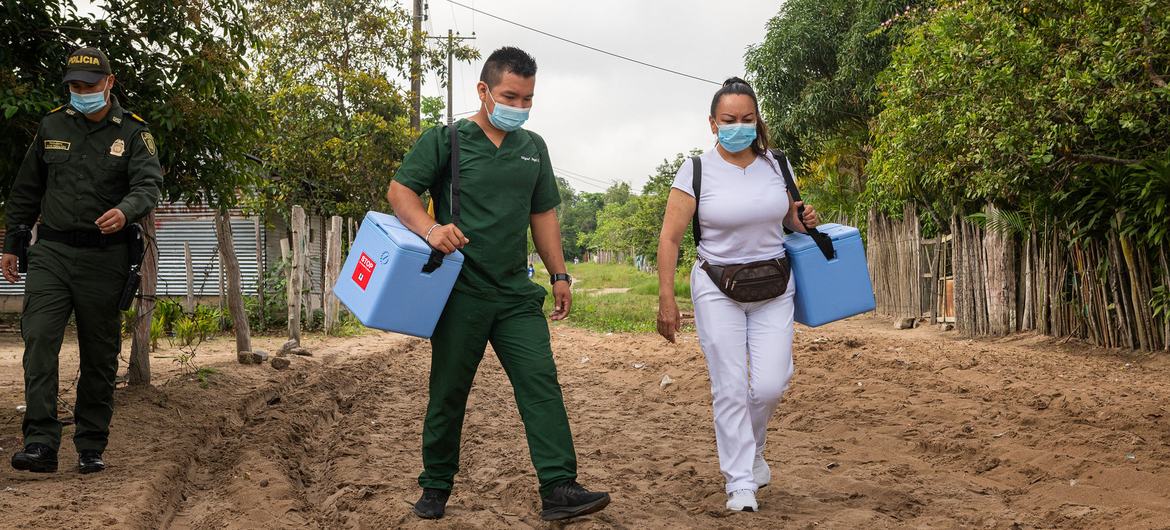
WHO/PAHO/Nadege MazarsA vaccination team goes door-to-door in a working class neighbourhood of Puerto Inirida, Colombia, to offer COVID-19 vaccinations.

